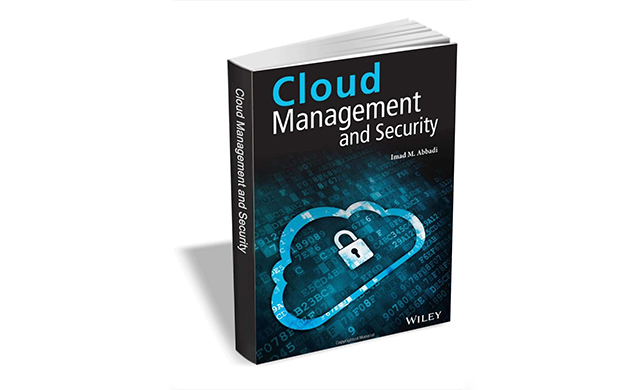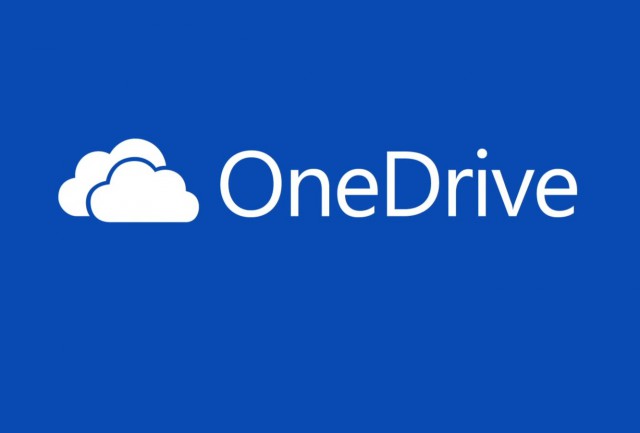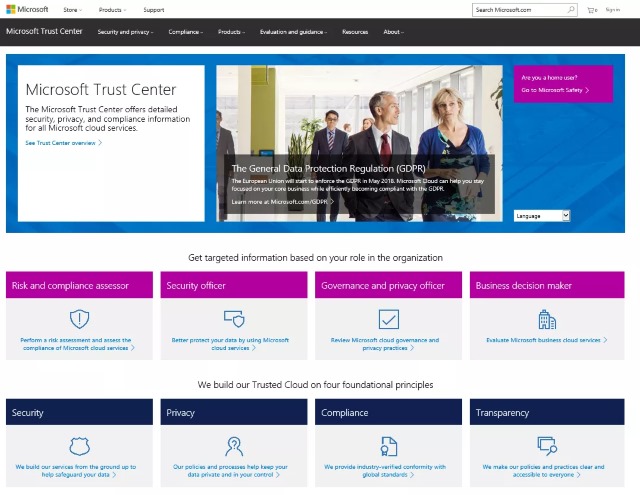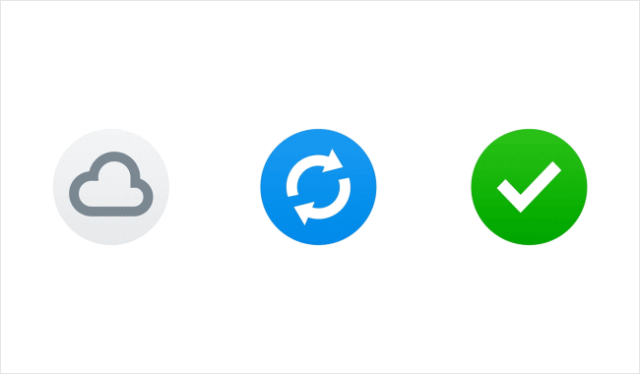
Get 'Cloud Management and Security' ebook ($109 value) FREE for a limited time
If you're looking for a way to get started in Cloud computing, or to get more out of an existing setup, Cloud Management and Security from Wiley is an essential read.
Written by an expert with over 15 years’ experience in the field, the book usually retails for $109, but for a limited time you can download the full ebook version for free.

Differential sync will speed up OneDrive from Q2 2017
It has been some time since Microsoft mentioned that differential sync would be coming to OneDrive, and the company's latest roadmap shows that it is due to arrive some time in the second quarter of this year.
The feature will help to save time and bandwidth by only synchronizing parts of a file that have been updated. It's something that users of Microsoft's cloud storage service have been requesting for a long time now, and years of asking will soon come to an end.

Popular Indian retailer Flipkart chooses Microsoft Azure as exclusive cloud platform
For Indian shoppers, Flipkart is a very well known online retailer. For smartphone buyers in particular, the internet shop is a great place to get quality Android devices at affordable prices.
Today, Flipkart announces something that should improve its shopping experience; the Indian retailer has selected Microsoft Azure for its cloud platform. While this won't be particularly visible to shoppers, Microsoft's platform should be a behind-the-scenes win for the overall customer experience.

Hybrid clouds will become mainstream in 2017
We've been talking about the cloud for some years now and, while we may look back at 2016 as a year of growing enterprise cloud adoption, 2017 will be the year when hybrid clouds really enter the mainstream. Cloud is no longer "optional" for enterprises looking to remain competitive: with businesses demanding ever-greater agility from their IT functions and with data growth continuing to explode at an alarming rate, more and more IT departments are looking to move critical IT services to a combination of private and public cloud.
Research by Veritas in 2016 found that 38 percent of workloads today exist in a private cloud, with 28 percent in a public cloud. And these numbers are expected to grow at rates of seven percent and 18 percent respectively this year. Here are a few of my thoughts and on how businesses are going to transform the way they use hybrid cloud in 2017.

Optimizing costs is top priority among corporate cloud users
Cloud management company RightScale has released the results of its sixth annual State of the Cloud Survey, the largest survey of corporate cloud users.
Among the findings are that optimizing cloud costs is the top initiative across all cloud users (53 percent) and especially among mature cloud users (64 percent). Respondents estimate 30 percent of cloud spend is wasted, while RightScale has measured actual waste at between 30 and 45 percent.

Microsoft aims to calm cloud security fears with revamped Trust Center site
The modern Microsoft places more importance on the cloud than ever before, and this means addressing the security concerns that users might have. As part of this, the company has upgraded and redesigned its Trust Center, home to a wealth of security information.
Designed to provide "support and resources for information professionals, as well as the legal and compliance community," the Trust Center is also of interest to anyone concerned about security in general and those who want to know how Microsoft is complying with laws around the world.

Breach analytics platform speeds up incident response
It's increasingly said by experts that data breaches are now a matter of when rather than if. Being able to respond quickly is therefore vital for companies to minimize damage and disruption.
Cybersecurity solutions and breach analytics cloud platform Eastwind Networks is launching an enhanced Breach Analytics Cloud platform to provide complete visibility across the entire attack surface.

Why do businesses still need to physically move and maintain digital data?
The explosion of digital information flooding the modern enterprise today creates its own unique challenges. Organizations strive to integrate multiple disparate systems, connect to a global ecosystem of partners and customers, and transfer large files and data sets securely -- basically, do business today -- but doing so efficiently and securely challenges even the largest and most skilled IT teams.
Amazon recently launched a service to literally drive a truck to your data center, load it up with all of your data, and drive it back to an Amazon server farm to plug it in and push it to the cloud. The rationale behind this offering stems from the idea that businesses looking to move massive amounts of data -- terabytes and petabytes of information -- to Amazon’s cloud don’t have a fast, affordable option to do so over the internet. But what if they did?

Unified security management comes to the cloud
Implementing effective security can be time consuming, complex and costly, more so given the adoption of cloud-based systems.
Unified security management (USM) specialist AlienVault is aiming to simplify things with the release of USM Anywhere, an all-in-one Software-as-a-Service (SaaS) security monitoring platform.

Let me tell you about Apple Fiscal Q1 2017
The measure of Apple fiscal first quarter 2017 isn't record revenues ($78.35 billion) but comparison to major competitors: More than three times Google ($26.06 billion) or Microsoft ($24.1 billion). Amazon announces tomorrow, Groundhog Day. Will the retailer's CEO, Jeff Bezos, see his shadow? The 3x multiplier nearly applies to net income: $17.89 billion, versus $6.64 billion and $5.2 billion, respectively, for the two rivals. Looked at differently, compared to Apple's same quarter in fiscal 2010, seven years later, profits exceed total revenues ($15.68 billion). That's an astounding comparison.
The results defy pundits' prognostications, including my own, about gravity pulling the company back to Earth. iPhone, as major source of revenue, can only stay up for so long, before slowing smartphone sales wreck havoc. That said, credit where it's due: CEO Tim Cook is, as I've asserted before, a logistics and manufacturing genius. He is a strategist, but not an innovation leader like predecessor Steve Jobs. Cook masterfully manages his inheritance, but he, nor Apple observers, should get lost in the quarter's glow: iPhone remains boon and bane.

Dropbox introduces Smart Sync and Paper
Dropbox has announced "significant product updates", introducing Smart Sync (some of you might know it as Dropbox Infinite), and Paper.
The company says the introduction of Smart Sync and Paper will boost team productivity and improve collaborative processes, end-to-end. First up is the Smart Sync. Dropbox calls it an "industry first", cross-platform, on-demand cloud storage solution. It offers intuitive storage, allowing users to sync all the content from their computers to their Dropbox accounts.

No, America, you can't just demand customer data from anywhere in the world
The US government has lost its bid to overturn a previous ruling which stated it could not force companies to hand over customer data that is stored on servers outside the US.
The government's appeal stems from a ruling back in July when it lost a case in which it was trying to obtain customer data from Microsoft. It was seen as a win for privacy at the time, but the government thought the ruling could stand in the way of law enforcement. A vote by the second US Circuit Court of Appeals in Manhattan means that an appeal will not be heard.

Work and personal app usage blurs as enterprise users change their habits
The use of the cloud and as-a-service software models is having a big impact on the way businesses operate, but just how is this shift playing out?
Identity management specialist Okta has collected anonymized data from its customers' networks around the world to create the third edition of its Businesses @ Work report looking at how organizations and the people who work for and with them get work done.

People, not technology, drive innovation
Anyone who has worked in the technology industry for a long time will develop a healthy cynicism towards industry buzzwords. They may also come to realize that the majority of technology "paradigms" are adaptations of concepts that have been done before. Digital disruption is not the automatic result of the arrival of new types of tech. Disruption, transformation, innovation -- call it what you will -- comes about as a result of human ingenuity, good fortune, and hard work -- in addition to technology.
Take Pokémon Go as an example. Plenty of analysis has been done on why it was so successful. Nothing about it was particularly radical; the smartphone, mapping, GPS, AR and, of course, the Pokémon themselves are not new. However the combination of these things tapped into a desire for nostalgia, collectables, and the need to complete and compete. Originally developed as an April Fool’s joke, it was, by all accounts, a highly successful mistake.

Unsanctioned cloud use remains a problem for enterprises
A new report from cloud security company Netskope reveals that while enterprise cloud adoption continues to rise, unsanctioned use of services remains a problem.
The results show that half of all users of officially sanctioned cloud storage services like Box and Dropbox also have a personal instance of the same service. This can make detection of unauthorized copying of data more difficult.
